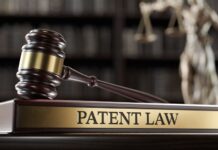
An Indian court has held that in the absence of a patent, common law rights or agreements protecting know-how cannot be a means to circumvent the patent process. In its judgement in Prof. Dr. Claudio De Simone & Anr v. Actial Farmaceutica Srl. & Ors. (17.03.2020, Delhi High Court), a Single Judge dismissing a suit for permanent injunction said that the right to an injunction could only be invoked under Section 48 of the Patents Act, 1970, and no right exists in common law to restrain others from commercially exploiting the know-how of an invention. Specifically, the Court said a person cannot acquire property rights in a product that is not patented in India, by entering into an agreement of exchange of know-how and claiming confidentiality.
The case
Plaintiff No.1, Dr. De Simone developed the De Simone formulation (“the formulation”) and claimed to be the sole owner of know-how, strain selection and blending ratio of the formulation. A US patent was obtained in 1998 for the formulation, with Plaintiff No.1 as a co-inventor, which was re-issued in 2008 with Plaintiff No.1 as sole inventor. The US patent expired in February 2015. Before the patent expired, Plaintiff No.1 entered into multiple agreements including for know-how, with the Defendants to commercialize the formulation in the US and India. Defendant No. 3 also acquired a trade mark for “VSL#3”, the brand name under which the formulation was commercialized in India. Subsequently, the agreements were terminated by Plaintiff No. 1, and the Plaintiffs are now selling the same product under the brand VISBIOME and VIVOMIXX.
The Plaintiffs made several allegations against the Defendants: firstly, that the Defendants were selling a counterfeit / spurious formulation deceptively similar to that of the Plaintiffs’; secondly, that the Defendants had applied for a drug license but withdrew the application when the Plaintiffs objected to it; and thirdly, that the Defendants were now selling the product as a probiotic food without any permission from the Drug Controller General of India (DCGI), risking the health of patients.
Corresponding to each of these allegations, the Plaintiffs sought permanent injunctions against the Defendant, essentially asking the court to put a stop to their commercial activities in the manufacture and sale, etc., of the formulation, and prevent any mis-association with the Plaintiffs’ research and organisations.
Litigation in the US
Before initiating the suit in India, Dr. De Simone together with ExeGi Pharma, LLC (Plaintiffs) filed a similar suit against with VSL Pharmaceuticals Inc., Leadiant Biosciences, and Alfasigma USA, Inc. (Defendants) before the United States District Court. Particularly, Dr. De Simone sought to defend his ownership rights over the know-how of said formulation, prevent the defendants from falsely advertising that their product was the same as the Plaintiff’s formulation and claim the unpaid royalties.
In November, 2018, a Maryland federal jury unanimously found in favor of the Plaintiffs. The jury awarded the Plaintiffs over $18 million dollars in damages in respect of violations including claim for unpaid royalties, false advertising under the Lanham Act, unjust enrichment.
Following the jury verdict, the defendants filed post-trial motions attacking key jury findings and requested a new trial. In June 2019, the United States District Court for the District of Maryland upheld the $18 million jury verdict from November 2018 and entered a permanent injunction against the current and former distributors of VSL#3, preventing the defendants from linking their product with the original De Simone Formulation by citing clinical studies performed on the original De Simone Formulation.
The issues
The main issues raised before the Delhi High Court were as follows:
- Rights in the know-how of a product
The Plaintiffs claimed to have rights in the know-how of a product protected by a trade secret, to prevent others from making a product even if it is not disclosed in a patent, or the associated patent expires. The Plaintiffs further asserted that this right may not be available against persons who have learnt the know-how by reverse engineering, but argued that those persons to whom the know-how was disclosed under an agreement were definitely included. The Plaintiffs said that such persons cannot take an undue advantage of such disclosure and confidentiality, and all related liabilities must continue regardless of whether the patent or know-how agreement expires.
The Plaintiffs also pertinently clarified that the suit was not asserting any contractual right between the parties.
The Court, relying on Navigators Logistics Vs. Kashif Qureshi 254 (2018) DLT 307, said that confidential information and trade secrets are not equated to property in India. Further, the information claimed to be confidential can be protected as a trade secret only if such information is not available in the public domain.
The Court said that since the innovation is in the public domain by way of the US patent, the claim for trade secret protection falls. It held that the Defendants cannot be restrained from manufacturing the product, in spite of the know-how agreement, for that would amount to the judicial creation of an extra-statutory monopoly for perpetuity in the invention. This would be in contrast to the scheme of Patent Act, 1970 that seeks to bring an invention to public domain after the patent term expires.
- Passing off
The Plaintiffs did not claim any ownership rights over the mark VSL#3, but sought to restrain the Defendants from selling their product under that same brand name. This was sought on the grounds of passing off, but instead of being claimed under the common defence of similarity or deceptive similarity of trade mark, it was based on the plea of unjust enrichment.
According to the Plaintiffs, the mark VSL#3 has come to be associated with its De Simone formulation. The unjust enrichment on the part of the Defendants was the result of the Defendants selling new version of VSL#3 by relying on studies and the reputation of the De Simone formulation.
The Court observed that the common law tort of passing off was statutorily recognized under Section 27(2) of the Trade Marks Act, 1999. However, it said, there is no common law right in an invention the same way it is recognized in trademarks. The Court said that rights in an invention are conferred only by the Patents Act, 1970.
The Court held that intellectual property rights of copyright, designs and patents, unlike trade marks, are pure and simple statutory rights. There are no rights, including claims in tort of unfair competition or unjust enrichment, in these forms of IPRs, save as provided under the respective statutes.
Noting that the formulation was not protected by patent in India, and and the US based patent had expired, the Court said that a passing off claim without patent protection could not be entertained.
The Court also said that the passing off claim with regard to the brand name was unfounded as the restraint on use was being sought with respect to property that the Plaintiffs did not own in the first instance.
- Reliefs claimed do not enforce individual civil rights
The Court said that the reliefs claimed of permanent injunction are governed by the Specific Relief Act, 1963 and fall in the genre of specific relief. Section 4 of the said Act provides that specific relief can be granted only for the purpose of enforcing individual civil rights and not for the mere purpose of enforcing a penal law.
The Court said that the reliefs claimed by the Plaintiffs do not enforce individual civil rights. The Court further said that the Plaintiffs’ contentions that the Defendants are causing injury to the public, was in public interest and without any personal right. Thus, the Plaintiffs have no personal cause of action. Since the Plaintiffs have not been able to show breach of any individual civil right, the Court said that an injunction against the Defendants cannot be granted.
CONCLUSION
In conclusion, the Court dismissed the suit for not disclosing any cause of action for the reliefs claimed. The Court said that, in the absence of a patent in respect of De Simone Formulation, no right subsists with the Plaintiffs to restrain the Defendants from working the formulation or from claiming their product to be the same as the formulation.
The decision of the Court in this case suggests that it has taken a position against protection of trade secrets. However, critical issues such as “breach of confidence” or “violation of a know-how agreement” were never raised to justify a proper debate on protection of trade secrets. It is likely that the decision will be appealed. Specifically, in light of the outcome before the US Court. As of now, it is interesting to see that a similar dispute before the US and the Indian Court, resulted in contrasting outcomes.
















